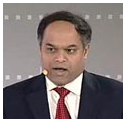 Ajit Joakar of Futuretext top predictions/trends for 2012:
Ajit Joakar of Futuretext top predictions/trends for 2012:
Live blogging casts, Transhumanism, SOPA, the rebirth of SMS and more…
1) What if you called a bandwidth crunch and no one came? AKA have you ever seen a bandwidth crunch in Boise Idaho?
2) The decline, fall and potential rebirth of SMS in a world dominated by Smart phones
3) Will we see a compromise on SOPA?
4) Why Facebook will make an impact beyond advertising in 2012
5) Free.fr and the business model of unbundling the set top box: I have been tracking the rise of free.fr for some time .. and it could be truly disruptive. Gigaom explains the context and says that the set-top box could be a stealth weapon. Unbundling – decoupling the set-top box could be a powerful concept. It is also relatively easy for other providers/countries to also do the same i.e. decouple the set top box from the network and provide connectivity services by including Nano cells/femtocells etc
6) The perfect storm driving the uptake of Smart cities : Relating to my work on the advisory board of the Word Smart Capital Initiative – Amsterdam, in the recession, many local governments all over the world will adopt the idea of smart cities. Smart cities reflect ‘Internet of things’ in action. There are three drivers to Smart cities: the Smart home, the smart building and mobile devices. However, the biggest driver for Smart cities could well be Smart data and the enabling of people to ‘add intelligence’ to locations and objects –ex the tweeting cat door , the live blogging cat , Adruiono etc. This is a perfect storm of many elements: Cheap sensors , open source hardware and software, Sensors in mobile devices, networked homes and most importantly, Open data. For instance, the European Commission has launched an open data strategy and here in the UK, professor Nigel Shadbolt will lead an “Open Data Institute” with Tim Berners-Lee. This is the perfect storm driving Smart cities. See my presentation at the Oxford University on Apps for Smart cities
7) Tech policy issues impact mainstream computing because they effect both cloud computing and the Internet: Cloud computing is everywhere – but the technology is not the only issue now for CIOS. SOPA, the Patriot act and other regulations are now taking center stage. Privacy, identity and cybersecurity dominated tech policy headlines coming. The U.S. government’s National Strategy for Trusted Identities in Cyberspace addressed key issues around creating an “identity ecosystem online.”, the eG8 showed that online innovation and freedom of expression still need strong defenders. We covered this in the policy bloggers network – Fostering trust in the Cloud in the face of law enforcement access to data and IGF – Nairobi : voices from the blogosphere and beyond
8) Social media ‘inside’ like ‘Intel inside’ – TV finally becomes a ‘social’ platform: Social media is fast becoming ‘embedded’ i.e. ‘Social media inside’ (just like Intel inside ). The value of Social media is not in itself but rather as a component of other services. This will have the greatest impact on TV this year. Already, we can login via facebook or twitter, we can logon using spotify on virgin (i.e. listen to spotify on virgin media) etc. Social media recommendations via TV, co-viewing apps (tablet apps used to watch with TV) etc all are becoming mainstream. A year ago. Western Europe suffered its first Q1 drop in TV sales ever and now Smartphones, tablets are edging out television sets on buyers list-Accenture. So, this year, TV will finally become a social platform – despite some resistance from the traditional TV purists.
9) Transhumanism: I have been interested in transhumanism like many in the technology industry specifically my latest book – Meditation in the age of facebook and twitter – this trend of ‘augmenting human capability through technology’ is being picked up by more mainstream companies – IBM says mind reading is no longer a science
